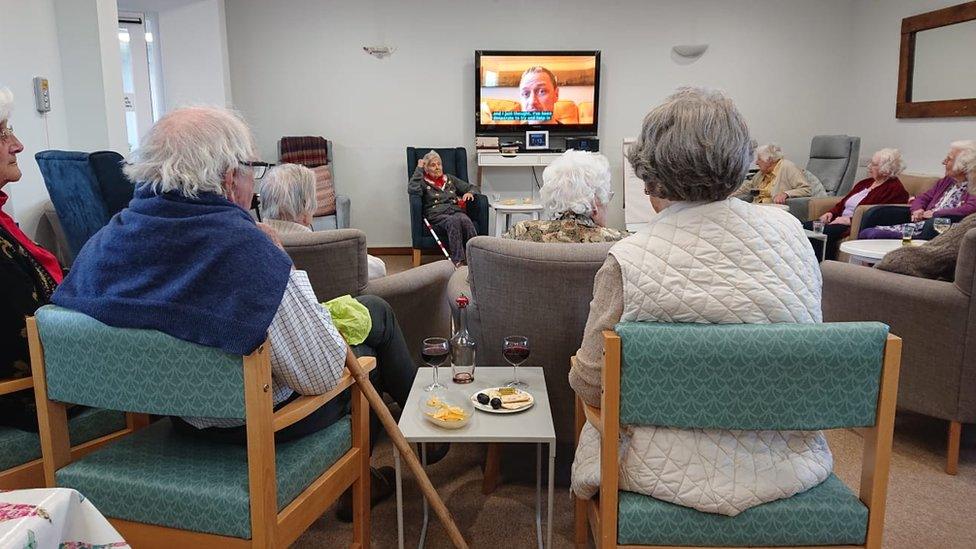Coronavirus: Care homes could 'go to the wall' as costs rise
- Published
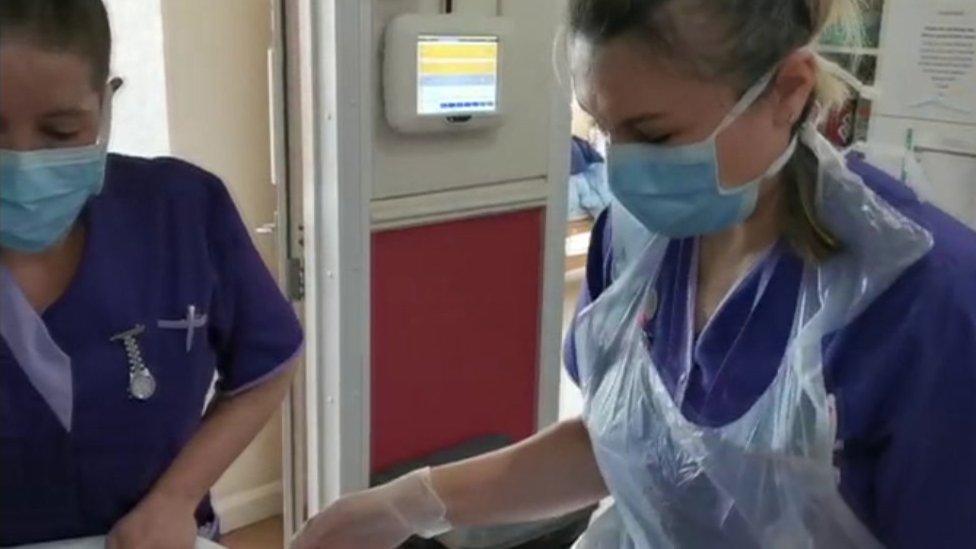
More care homes have had tests for their staff but one in three contacted by the BBC have not
Care homes "could go to the wall" due to rising costs from the coronavirus pandemic, bosses have said.
Thirty out of 102 care providers contacted by the BBC also said none of their staff had been tested, down from 75 who said so in April.
Care sector leaders said the government response was "patchy and inconsistent".
The Department of Health and Social Care said all care staff and residents can now be tested, regardless of symptoms.
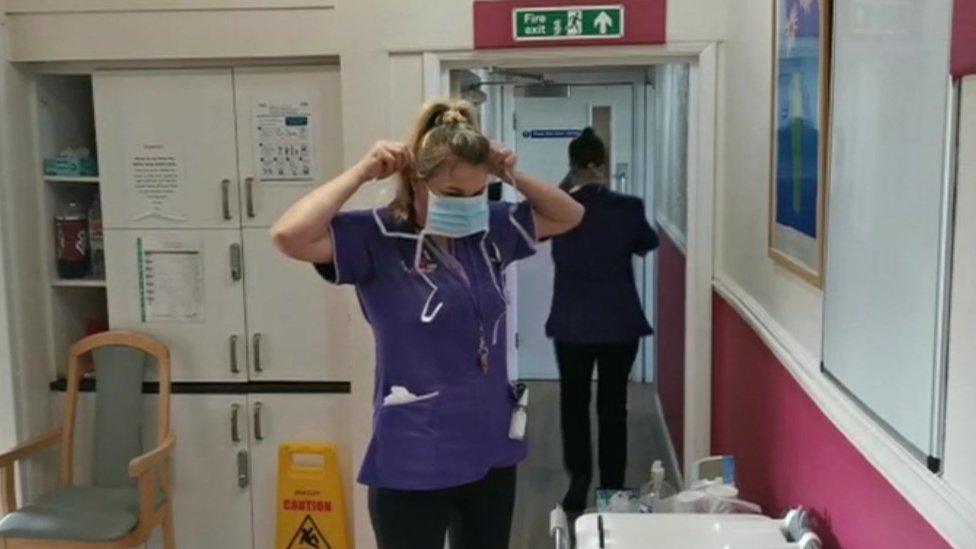
Care homes' costs have risen from buying protective equipment and using more agency workers
BBC England spoke to 102 care homes and providers across the country, which between them care for more than 6,500 residents and have about 9,000 staff.
In April, 75 of those providers said none of their staff had been tested. By 19 May, that number had fallen to 30.
In total, one in five of the 9,000 staff have had to self-isolate because either they or members of their families have shown symptoms of the virus.
Mike Padgham, who runs four homes in North Yorkshire and is chairman of the Independent Care Group, said he was worried about the rising costs of the pandemic, from personal protective equipment (PPE) to extra staff to cover for those self-isolating as well as lost income from empty beds.

Mike Padgham says his care homes are counting the cost of the pandemic.
His own homes have lost an estimated £100,000, and it is difficult for care home providers to restrict the use of agency staff as they try to fill the gaps left by those who have to self-isolate.
He said rising costs of personal protective equipment and lost income from fewer new residents moving in were hitting both social care staff and the older people they care for.
He said: "Sadly I think some providers will go to the wall.
"That will mean a loss of jobs and it's a resident's home so where are they going to go?"
The government is spending £600m to tackle the infection in care homes but Mr Padgham said it had become tied up in bureaucracy, and will not get to care homes until June.
"The NHS and social care have been on the front line together from day one, but social care has only just been recognised," he said.
"Even though people have said things [in Parliament] and at the number 10 briefing about us having an arm put around us, a ring put around us, we don't feel protected."
Nadra Ahmed, chairwoman of the National Care Association, said the BBC's findings show the response is "patchy and inconsistent".
"The availability of tests is improving but two months in, where social care was largely ignored at the outset, we really should be much further ahead to ensure the residents and staff are protected," she said.

RISK AT WORK: How exposed is your job?
SCHOOLS: When will children be returning?
LOOK-UP TOOL: How many cases in your area?
RECOVERY: How long does it take to get better?
A SIMPLE GUIDE: What are the symptoms?

The BBC's research also shows that 71 of the 102 homes and providers have had some residents tested - an improvement on April when only 42 reported any residents had been tested.
Prof Martin Green, chief executive of Care England, said ongoing testing was crucial.
"Testing is not a one off, it needs to be a rolling programme and used in conjunction with tracking and tracing," he said, adding that care homes needed "immediate access" to testing to ensure the safety of residents and staff.
As of 8 May nearly 10,000 people had died in English care homes with Covid-19, according to the Office for National Statistics (ONS).
Public Health England data shows that every English district, apart from the Isles of Scilly, has recorded at least one care home coronavirus outbreak.
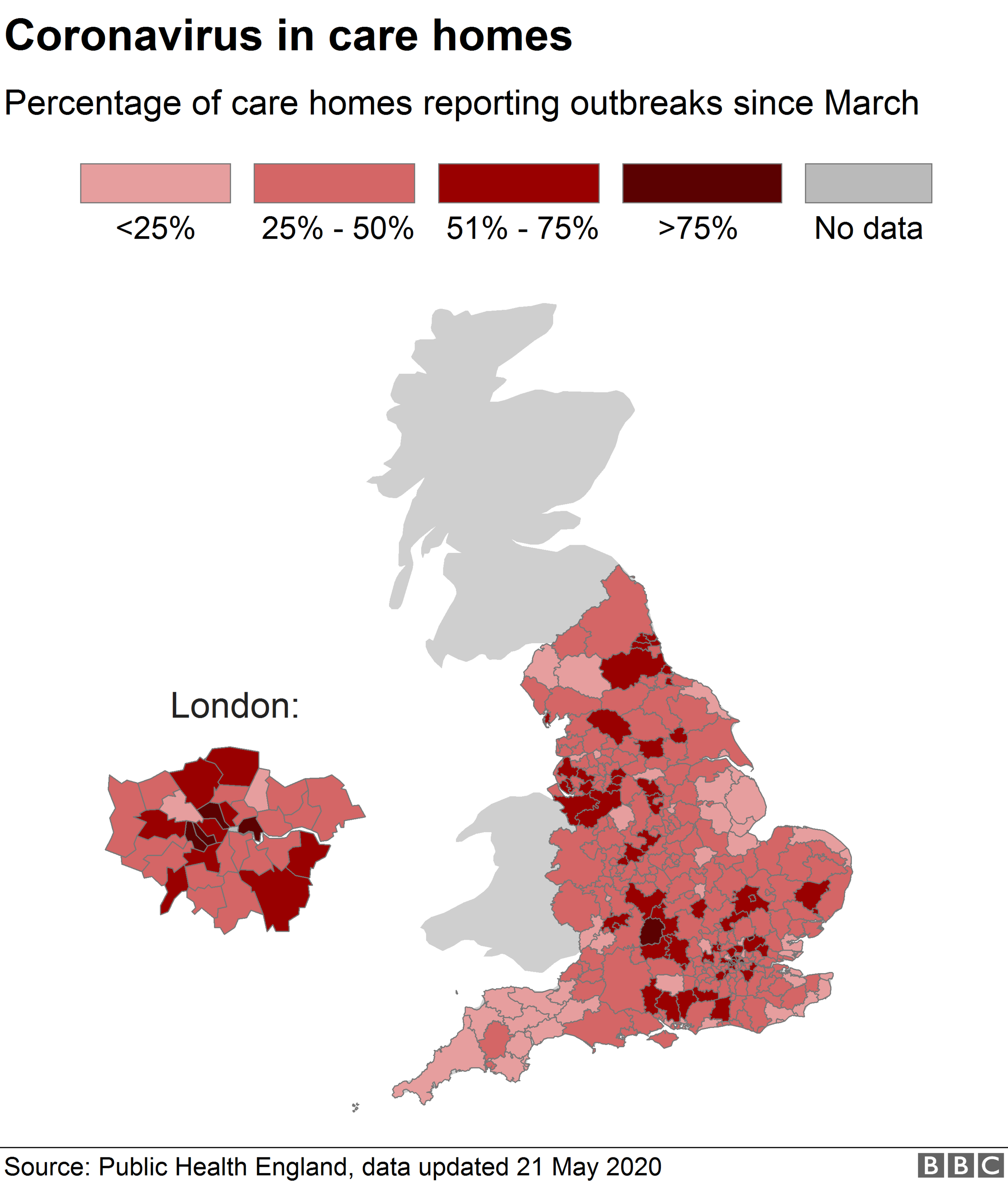

As of last week there had been 5,876 confirmed or suspected outbreaks in care homes in England, equivalent to more than one for every three care homes.
A spokesman for the Department of Health and Social Care said: "Throughout this unprecedented global outbreak we have been working tirelessly with the care sector to stop the spread of the virus and save lives.
"We have based all our decisions on the best scientific and clinical advice - as a result nearly two thirds of care homes have had no outbreak at all.
"Our aim is to make it as easy, fast and simple as possible for anybody who needs to get a test to do so and by significantly increasing testing capacity we can now test all care workers and residents, regardless of symptoms."
Research was conducted from Friday 15 May to Tuesday 19 May and the BBC spoke to 102 care homes and care home companies.
- Published15 May 2020
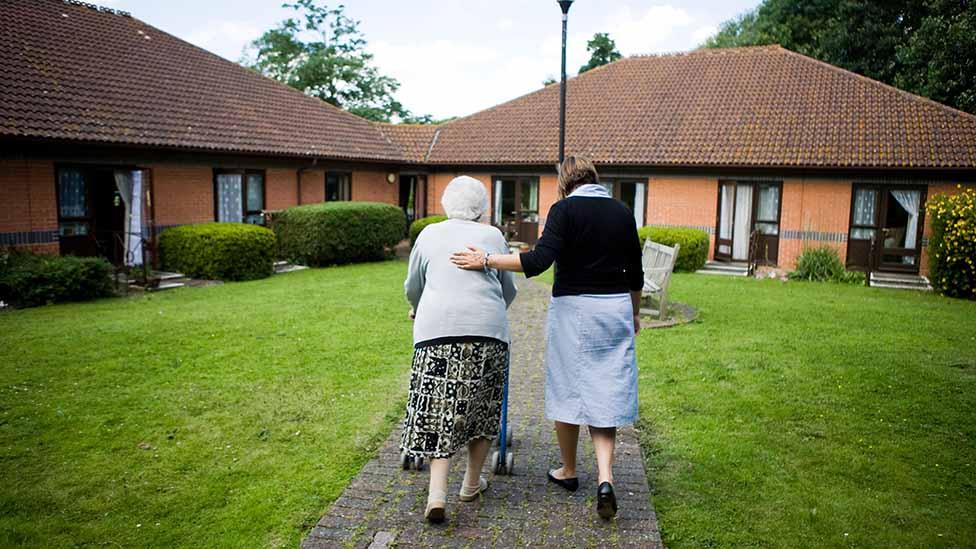
- Published15 May 2020
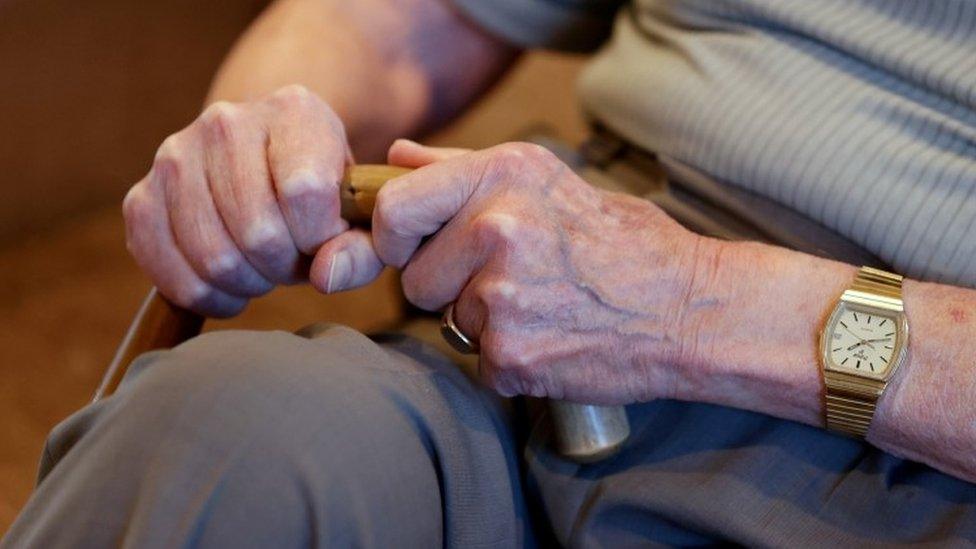
- Published26 April 2020
